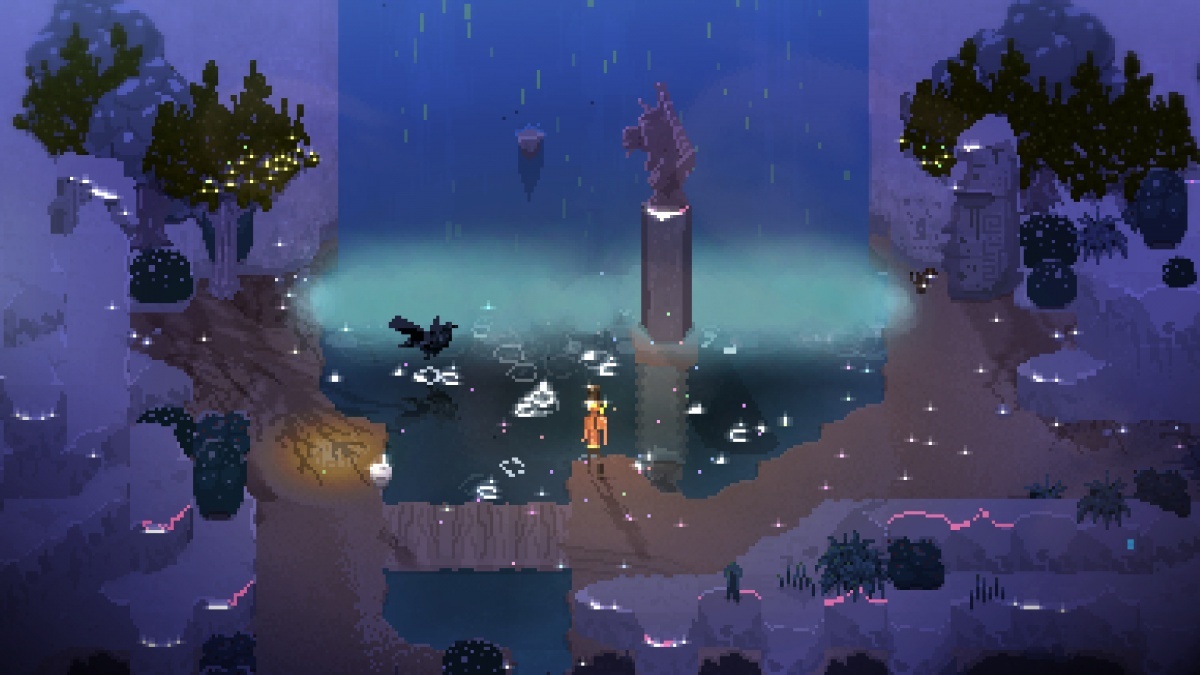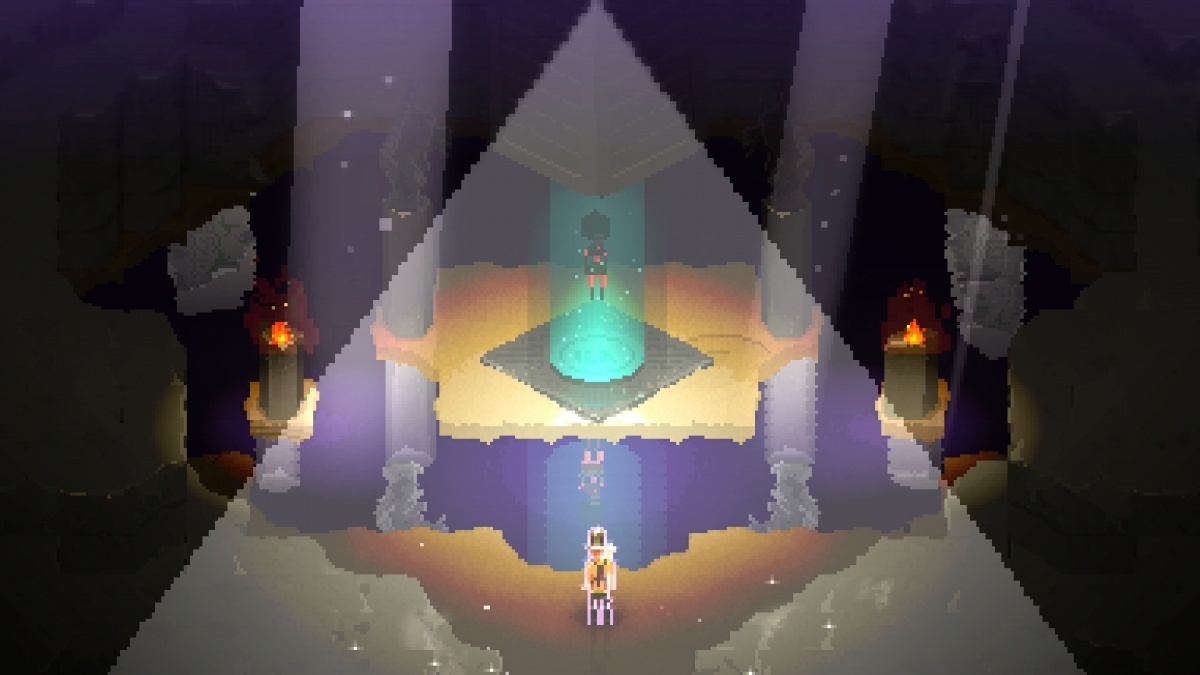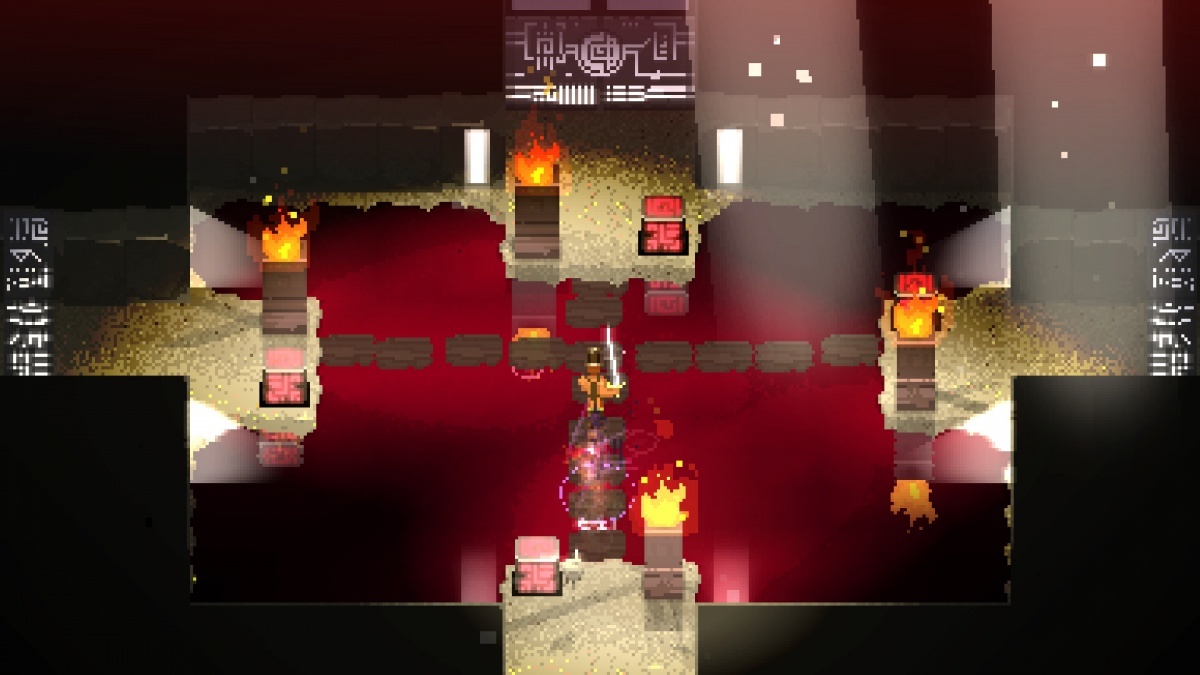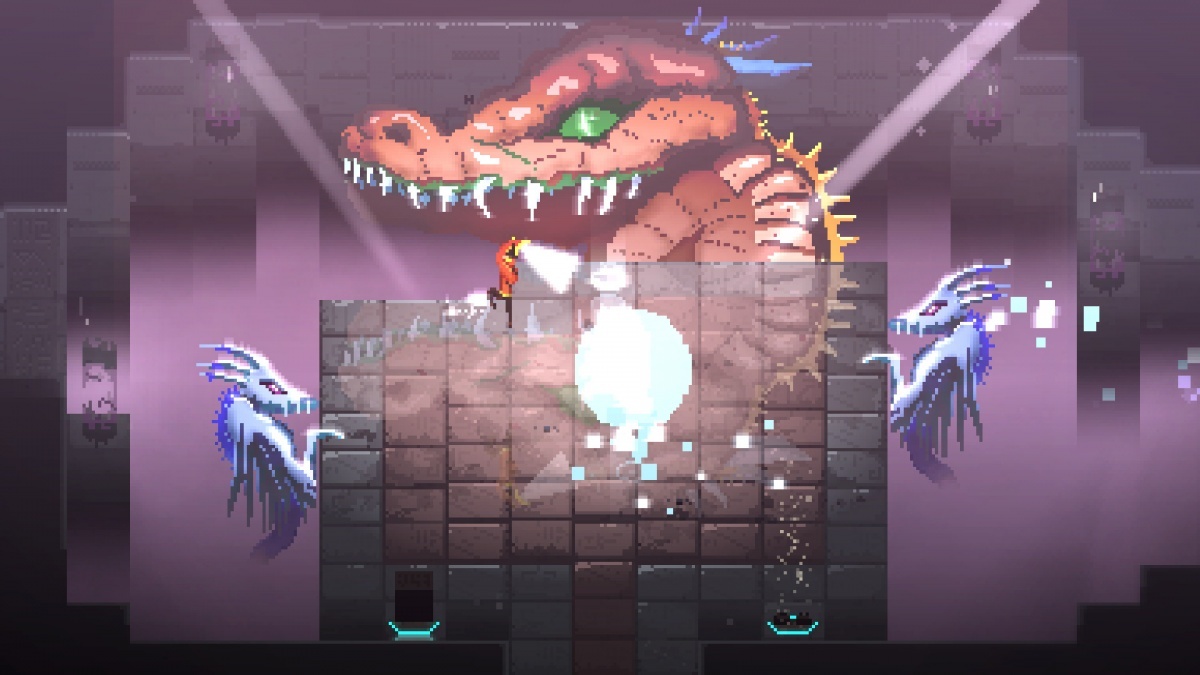Songbringer (PlayStation 4) Review
By Renan Fontes  04.09.2017
04.09.2017

It's hard enough developing a game that's deeply rooted in homage, and it's even harder when the gameplay revolves around a randomised overworld and dungeons. Songbringer is Wizard Fu Games' attempt at injecting roguelike elements into the original Legend of Zelda. What made the first Zelda such a classic was that blend of non-linear exploration and action. Throwing in procedurally generated worlds seems like a sure-fire way to innovate on an old classic. The main issue here is that Nintendo designed Hyrule with a specific world in mind. Without that deliberation, the secrets would not have been as noteworthy, the dungeons would lack their now iconic layouts, and enemy placements would be a total free-for-all. Songbringer's goal is as ambitious as it is dangerous. The question is whether or not the risk was worth it.
In styling itself after The Legend of Zelda with a randomised flair, Songbringer has two major challenges to overcome: establishing an identity of its own and making sure the procedural generation always yields interesting results.
In regards to the former, Wizard Fu Games has certainly put in the effort to ensure the action RPG roguelike isn't derivative of Nintendo's classic. Tonally, the two are worlds apart. The inspiration is a high fantasy adventure while the inspired is a sci-fi quest. One has a traditionally "epic" soundtrack, and the other focuses on creating mood through a strange, yet still pleasing note structure. TLoZ uses sparse dialogue to point out secrets, and Songbringer never shuts up.
A good script knows when to be quiet. This is a universal truth for all mediums. Silence is deafening and can establish a world or character just as well as dialogue. In an attempt to explain the world and give the protagonist, Roq, personality, the script is filled with Roq's intrusive quips.

Humour is a good way to get an audience to like a character, but it can also come off very cheap. Roq's interruptions are surface level observational comments that boil down to generic excitement over using a bomb. Like many protagonists before him, his main personality trait is "a little bit funny" and he's not better off for it.
The sad part is Roq is accompanied by a floating robot, Jib, whose interruptions tend to make sense in context. He occasionally mentions the possibility of Roq having brain damage and could theoretically push him towards the right direction. Learning about Roq through Jib could have been an interesting way of exploring a silent protagonist, but, as it stands, Roq's character falls flat, serving more as a nuisance than anything else.
Despite the script problems, it cannot be denied that Songbringer has an identity of its own. It has a hostile atmosphere that perfectly matches its aesthetics, and the science fiction elements are integrated rather nicely. When it comes to paying homage to The Legend of Zelda, it's the gameplay where most of the inspiration went into.

Row starts swordless in a directionless overworld, and it's up to him to decide what to do next. Just like Zelda, there's an immediate freedom and a drive to explore. While investigating the landscape and taking in the scenery maintains its lustre for most of the experience, the same cannot be said for the action.
From a technical standpoint, the combat is severely lacking polish. Zelda's action was simple, but it was at least refined. Roq's swing arc is visually misleading, giving the impression that his range is larger than it actually is. Most enemies are knocked back when hit, making it incredibly difficult to kill them fast with the sword.
Roq can get access to different weapons throughout his journey, like a hat that serves as a boomerang and bombs, but they tend to be weaker than the sword. Weapon usage ends up being a toss-up between using a strong weapon with knockback and a bad hit box, or a significantly weaker weapon that at least feels good to use.

The biggest problem with the combat stems from the procedural generation. It's entirely possible to move down a screen and take damage from an enemy that was placed right at the entrance. Songbringer takes a concept as simple as traversing the world and turns it into a random chance to take damage. This isn't an issue that occurs often, but it does occur - and that's a problem.
In its defence, the procedural generation is at least creative in execution. Seeds are created through six letter names and each name is the same across all versions of the game. It's entirely possible that a perfect overworld with perfect dungeons exists, but it isn't due to any deliberate design choices.
Songbringer is in a very strange position where it has legitimately good ideas, but they're held back through awkward design choices or a simple lack of design. Permadeath is a nice little add-on, the aesthetic is great, and casually exploring can be fun, yet the combat, randomisation, and poor writing all work together to bring that fun to a halt. Worst of all, that Legend of Zelda touch simply isn't there because the world isn't crafted by hand. Songbringer may not be bad overall, but it isn't good, either.

Cubed3 Rating
Average
In theory, Songbringer should be excellent. As a procedurally generated take on the original Legend of Zelda, there's plenty of room to innovate with old and new ideas alike. Unfortunately, the old ideas feel derivative of better games and the new ideas are hardly revolutionary. The overall aesthetic and sound design do a great job at creating atmosphere, which makes it all the more disappointing when the level design falls victim to the typical procedurally generated pitfalls. Without attention specifically given to enemy placement, how areas connect, and dungeon design, Songbringer never sustains a consistent level of difficulty or quality. Procedural generation is a handy tool, but not when it's used as a substitute for actual level design.
Comments
Comments are currently disabled

 Sign In
Sign In Game Details
Game Details
 Out now
Out now  Out now
Out now  Out now
Out now  Out now
Out now  Subscribe to this topic
Subscribe to this topic Features
Features





 Top
Top

